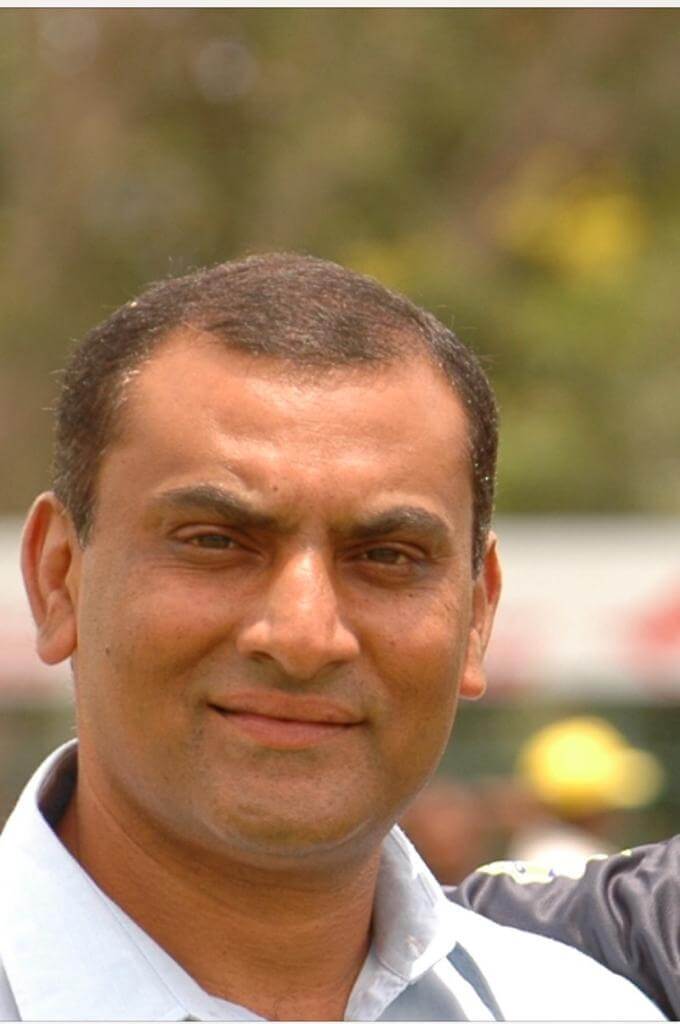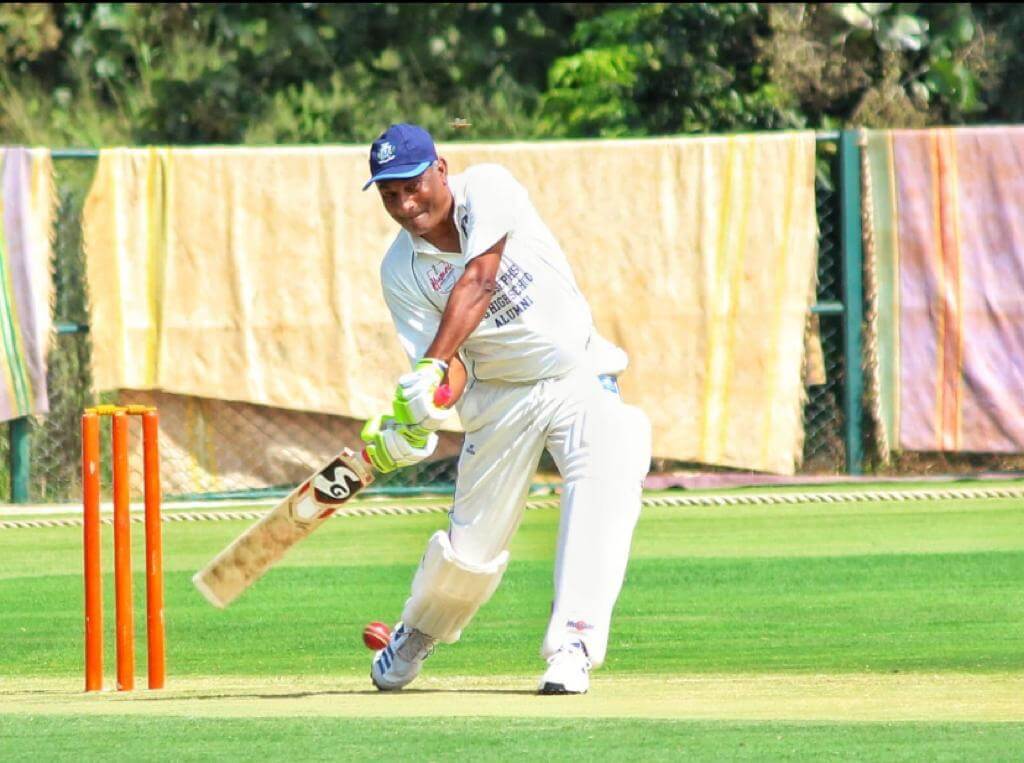By Aratrika Dey
Bengaluru boy, top-class batsman for Karnataka, your next-door neighbour (if you’re from HSR Layout), and now Chairman of the men’s state Senior and U-23 selection committees, Fazal R Khaleel has had quite the journey in the world of cricket. The Karnataka State Cricket Association (KSCA) announced early this year that Khaleel replaced Raghuram Bhat for the top seat. The 47-year-old former opening batsman is no stranger to the selection committee as he was a member of it earlier.
When did cricket happen?
Back in the days, schools across India paid much heed to cricket as an extracurricular activity. It was a common sight to see kids returning home from school in their practice gear. During Khaleel’s days at St. Joseph’s Boys’ High School (Bengaluru), the scenario was quite the same. The school actively encouraged students to play cricket. When the coaches at his school started to notice his potential and pushed him, his interest in cricket took root. Playing higher levels in the game, then going on to perform in the age group categories, besides the support from his mentors, made him realise his passion for the sport. “I never really planned anything,” muses Khaleel. “It was a natural transition from being a’ lunch-break after-school activity’ to a job” due to the constant coaxing from the coaches. “I pursued it as a passion, more than anything else. Even I’m not sure when it became a career.”
A cricketer’s muse
Growing up in the 80s’ for any aspiring cricketer, Sunil Gavaskar and Kapil Dev were huge inspirations. Every kid who played cricket wanted to be players of their calibre. In Khaleel’s case, it was Gavaskar. “He was probably one of the reasons why I became an opening batsman as well,” he says. “I wanted to handle the pressure for the team.”
Career highlights
For any sportsman, playing and winning for their state or country takes precedence over other factors. “If you can win a national level tournament and contribute to it, that gives you the most satisfaction,” he says. Karnataka won the 64th season of the Ranji Trophy against Uttar Pradesh in 1997 for the second consecutive time. It was during this period that seven players from the state were playing for the national Indian cricket team. “To have played alongside them and having contributed to a winning cause was the highlight of my career,” says Khaleel. It was also the time when people started considering the Karnataka cricket team as a serious contender. “After EAS Prasanna and BS Chandrashekhar, there was a vacuum. But when the team resurrected itself under Anil Kumble and Rahul Dravid, we started winning. In four years, we won the Ranji Trophy thrice!”
Batsman to Chairman of the state selection committee
Cricket is not an individual sport, but a team sport. You have to be a team player and work with your teammates to achieve anything. As a young player, Khaleel always carried the sense of pressure as it is upon the selector to pick you, no matter how good you think you might be. Based on his experience, he wanted to become a selector. “There were times in my career where I thought I could have gotten selected,” he recalls. “When I quit first-class cricket and got into the selection panel, I did not want those kids to feel left out or aggrieved the way I might have felt against a selector.”
According to him, being a selector is not an easy journey. The job is such that you can’t please everybody with your decisions. Now that he is the Chairman of the selection committee where he is in charge of boys who will go on to be a part of the future of cricket, the pressure is real. “You do the best you can to pick the finest players for a particular age group,” says Khaleel. “I am more under pressure to pick the right boys who have performed well, and make sure that they come through and play for the state and also have the potential to play for the country.”
Player vs Selector
As a batsman, Khaleel had one responsibility: to contribute towards the winning cause of the team. As a selector, or the Chairman of selectors, it is more incumbent on him to pick the right people for the job. He is not only collectively responsible for the players, but also for his fellow selectors. Besides, he has a sense of responsibility towards the general public. “Every move is scrutinised,” he says. “Every player I have picked has to have a proper set of reasons to justify my selection, and that is just one part of the job.” He also has to look at the various skill sets that a player brings to the table. Someone might be an exceptionally good bowler, one might be a great fielder, or a great batsman or all of them combined. “Being a batsman and a selector have their highs and lows like any other career,” says Khaleel. “I enjoy playing the game, but at the moment I am enjoying picking the right players for the job.”
Moving on with the times
“You have finished your course as a cricketer, and now you are in the more administrative part of it,” says Khaleel. He had a responsibility then, and he has a responsibility now. And he tries his best to make the most of his position: to produce as many great players who will not only represent his state but also proudly represent India. We wish him the best in his new endeavours.






